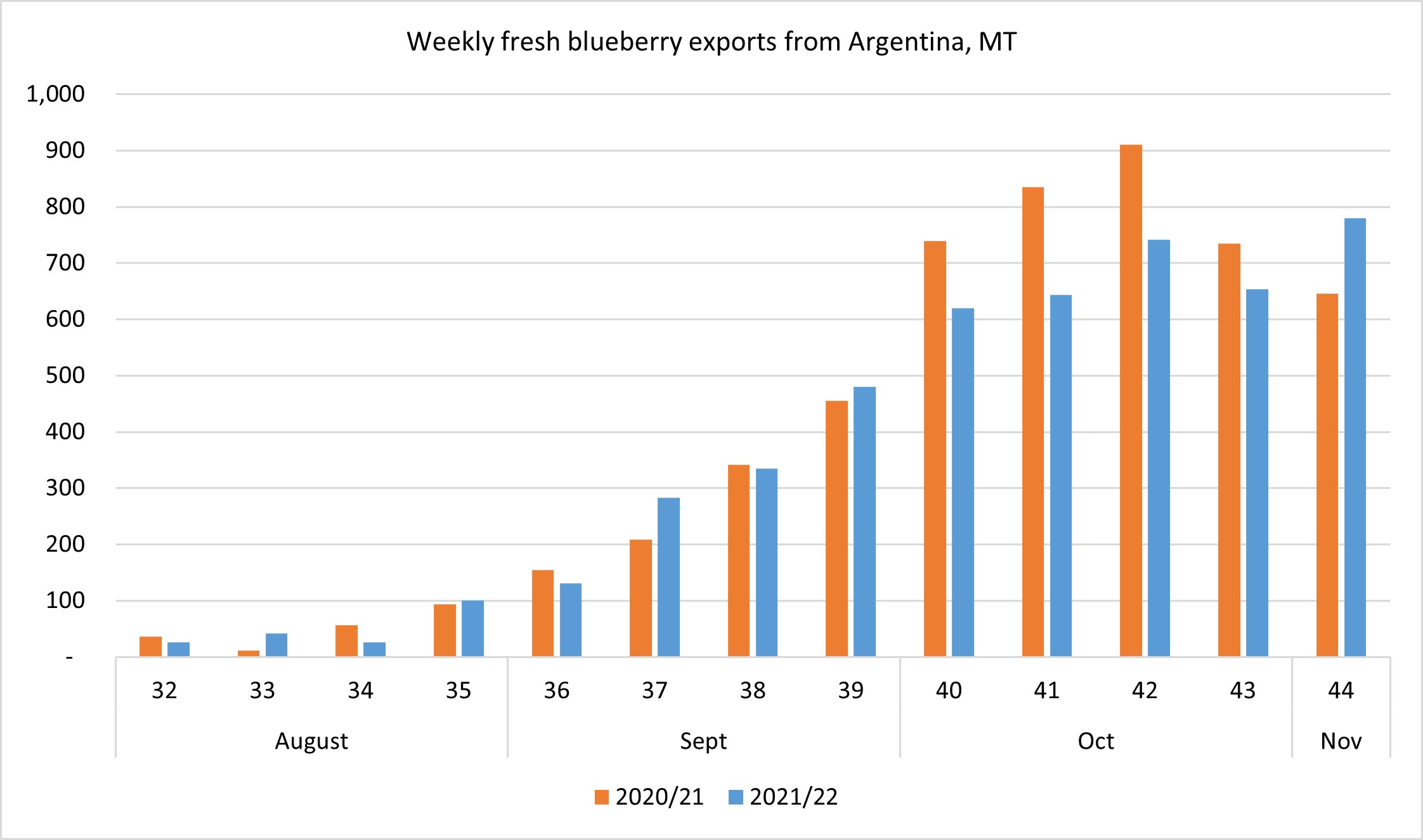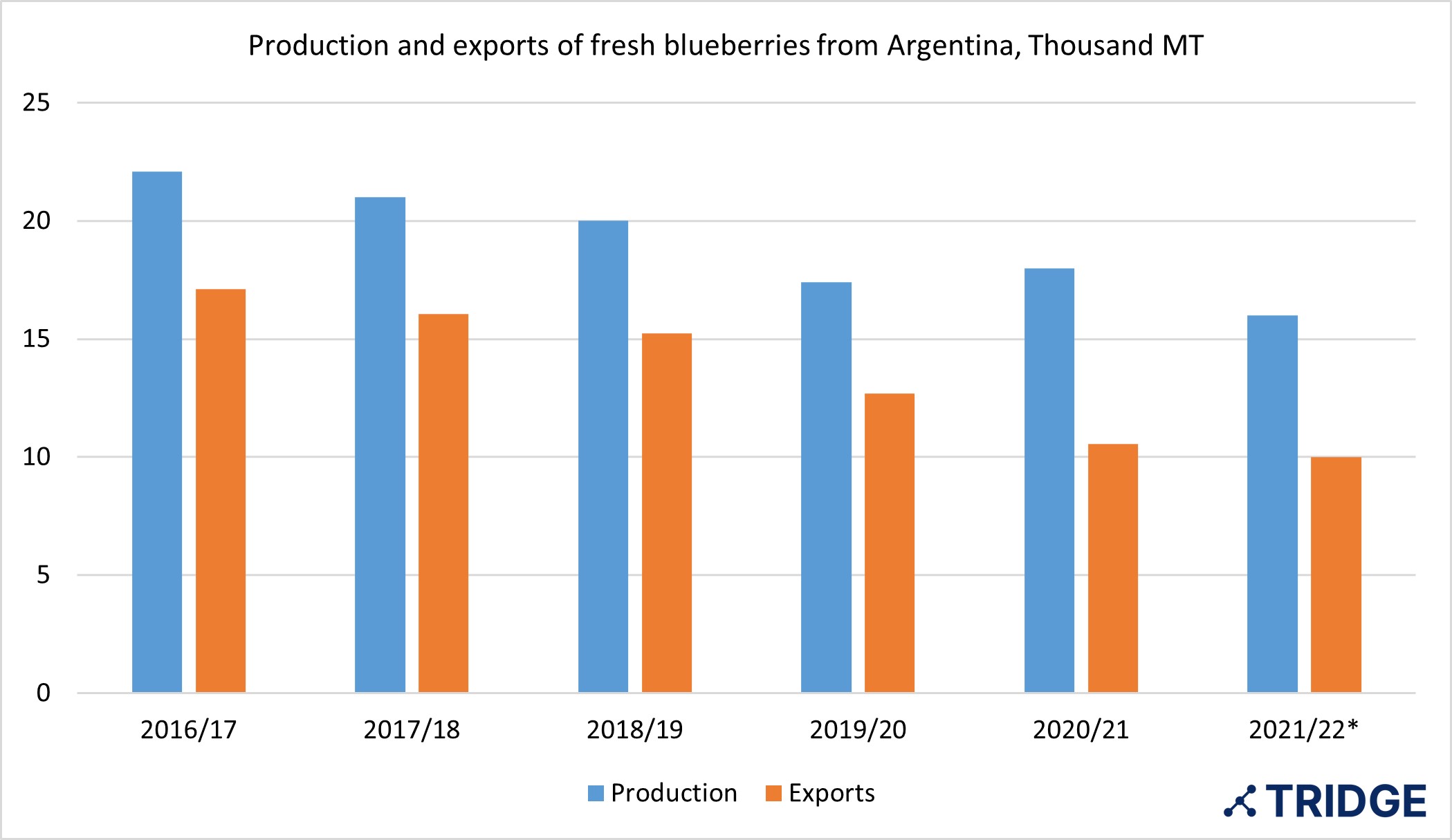Argentina's blueberry exports in the 2021/22 season trail behind last year's results

Argentina’s blueberry exports in the current 2021/22 season are trailing behind last season’s results. According to Argentinean Blueberry Committee (ABC), fresh blueberry shipments to foreign markets reached 4,968 tons in August through to the first week of November 2021, which represents a 5% decrease compared to the same period last season.

Source: ABC
One of the main reasons behind a slowdown in the export pace is high air freight rates, which have been affecting the competitiveness of fresh blueberry exports from Argentina in the past 5 seasons. In 2020/21 and 2021/22 the situation has been complicated by lockdowns caused by the pandemic which were limiting the number of flights and were disrupting the work of airports thereby increasing the air transportation costs. Some airlines have simply left the Argentinean market to avoid losses. This means that the main air routes have been automatically closed. According to the Head of the Association of Blueberry Producers of Tucumán (one of the three producing areas of blueberries in Argentina), air freight rates from Argentina to the main destinations exceeded $3/kg. Last year, the air freight rate to the main destinations was estimated at $2.5/kg.
High logistics costs have been displacing Argentina from its presence in the international markets in the past 5 years. To stay afloat and to solve the issue, Argentinian blueberry exporters switched to sea shipment, which decreases the transport cost by 5-6 times. As a result, the share of blueberries delivered by vessels from Argentina reached 57% in 2020/21 compared to 24% in 2019/20.

Source: ABC
Lower anticipated production volumes in the 2021/22 season are also constraining the export pace of fresh blueberries. According to ABC estimates, Argentinian producers harvested 18,000 tons in the 2020/21 season, which is 2,000 tons more compared to the current season’s estimate. Over the past 5 years, blueberry production in Argentina has been declining amid the diminishing profitability of the industry. The reason for falling profitability is connected to high labor costs in the country because the gloss salary includes 40% of social security payments. Since blueberry farming is a labor-intensive business, the raising labor cost invariably affects it immensely.

* ABC estimates
Source: Argentinean Ministry of Agriculture, ABC
Ramping up supplies in the global market has caused a fall in prices, especially those from Peru and Chile. This made exports from Argentina less attractive. ABC projects the exports of fresh blueberries from Argentina at 10 million tons in the current season, down 6% from the 2020/21 level.
Sources:
Blueberriesconsulting Argentina: Logistics costs slowed the export of blueberries
Freshplaza Argentine blueberry production struggles to remain profitable
Argblueberry Argentinean Blueberry Committee
Argblueberry A season filled with challenges
Blueberriesconsulting The blueberry is dying in Argentina: From attracting investment to halving its export figures
Agrosito Argentina's blueberry industry undergoes various changes
Argblueberry Argentine blueberry season wrapped up with stable numbers and higher sea shipments
Agroempresario.com Federico Bayá: "The blueberry is a unique product" (translated from Spanish)





